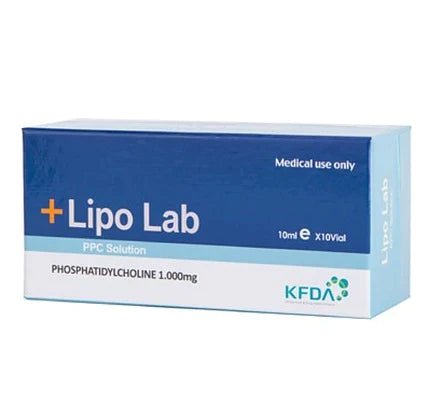Lipo Lab Injection South Africa: What Are the Benefits?
Are you struggling to get rid of those stubborn pockets of fat, no matter how much you exercise or diet? If you are, then you might be interested in Lipo Lab injections, a non-surgical fat reduction treatment that has been gaining popularity in South Africa. But what are Lipo Lab injections, and what benefits do they offer? In this article, we'll take a closer look at Lipo Lab injections in South Africa and explore the potential benefits of this innovative treatment.
What are Lipo Lab injections?
Lipo Lab injections are a non-surgical fat reduction treatment that involves injecting a solution of lipotropic agents, enzymes, and vitamins into the fatty tissue under the skin. Lipotropic agents are compounds that help the body break down fat and eliminate it through the liver. The solution used in Lipo Lab injections is designed to specifically target and break down stubborn fat deposits that are resistant to diet and exercise.
Lipo Lab injections are administered using a fine needle, and the treatment takes just a few minutes. Most patients require several treatments spaced a few weeks apart to achieve optimal results.
What are the benefits of Lipo Lab injections?
-
Non-surgical: One of the main benefits of Lipo Lab injections is that they are a non-surgical alternative to liposuction. This means that there is no need for general anesthesia or a long recovery period. Lipo Lab injections are minimally invasive and can be performed on an outpatient basis.
-
Targeted fat reduction: Lipo Lab injections target specific areas of the body where stubborn fat deposits are present, such as the abdomen, hips, thighs, and upper arms. By targeting these areas, Lipo Lab injections can help to sculpt and contour the body, resulting in a more toned and defined appearance.
-
Quick results: Unlike traditional weight loss methods, which can take months to show results, Lipo Lab injections can produce visible results in just a few weeks. Many patients report seeing a noticeable reduction in fat after just one or two treatments.
-
Improved self-confidence: If you have struggled with stubborn fat deposits for years, then you know how frustrating and demoralizing it can be. Lipo Lab injections can help to improve your self-confidence by giving you the toned and contoured body that you have always wanted.
-
Minimal side effects: Lipo Lab injections are generally safe and well-tolerated. Some patients may experience minor side effects such as swelling, bruising, or redness at the injection site, but these typically resolve within a few days.
-
Long-lasting results: While Lipo Lab injections are not a permanent solution to fat reduction, the results can last for several months to a year or more, depending on your individual circumstances. With proper diet and exercise, you can help to maintain your results for even longer.
Conclusion
Lipo Lab injections are an innovative non-surgical fat reduction treatment that offers a range of benefits for patients in South Africa. From targeted fat reduction to improved self-confidence, Lipo Lab injections can help you achieve the toned and contoured body that you have always wanted. If you are interested in Lipo Lab injections, be sure to consult with a qualified and experienced practitioner who can help you determine if this treatment is right for you.




